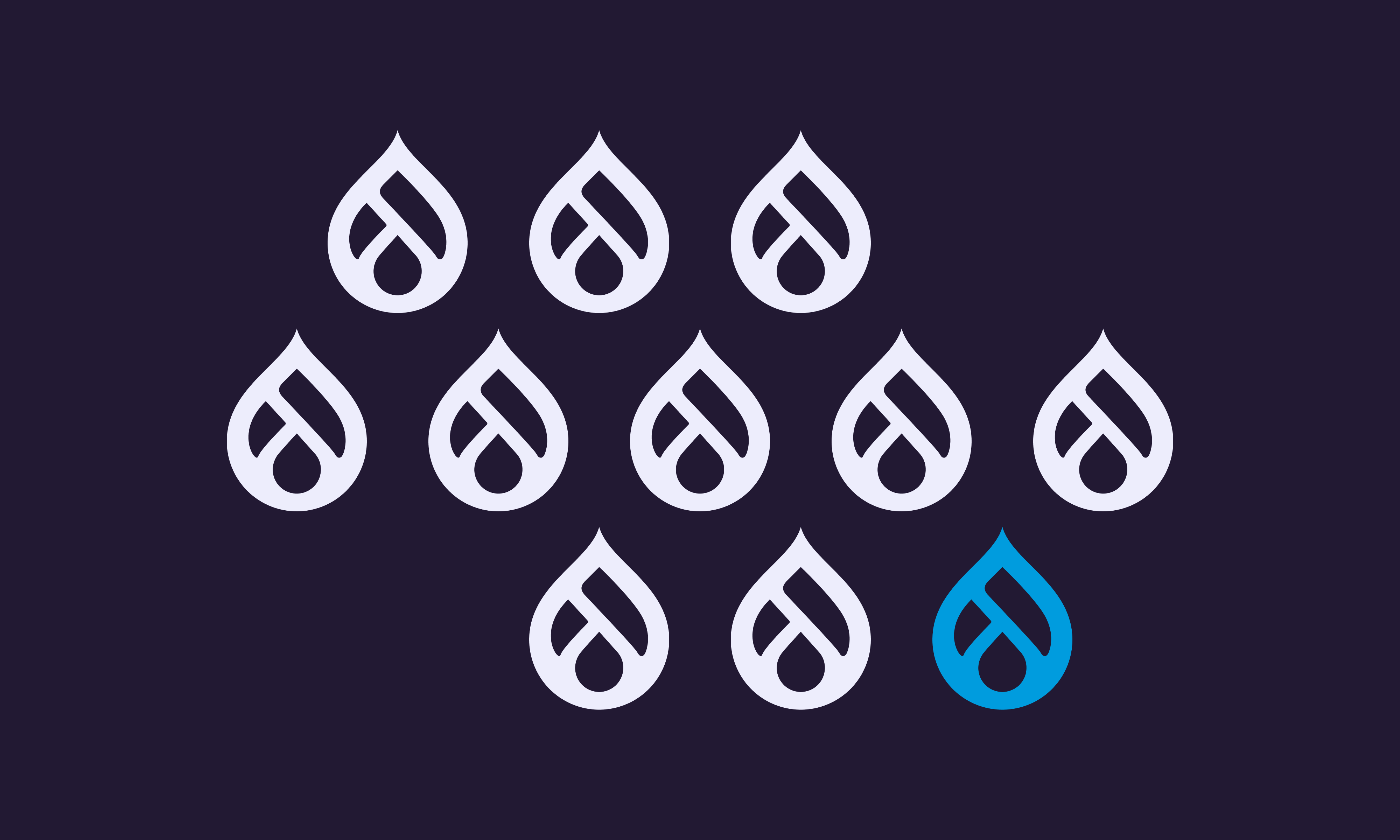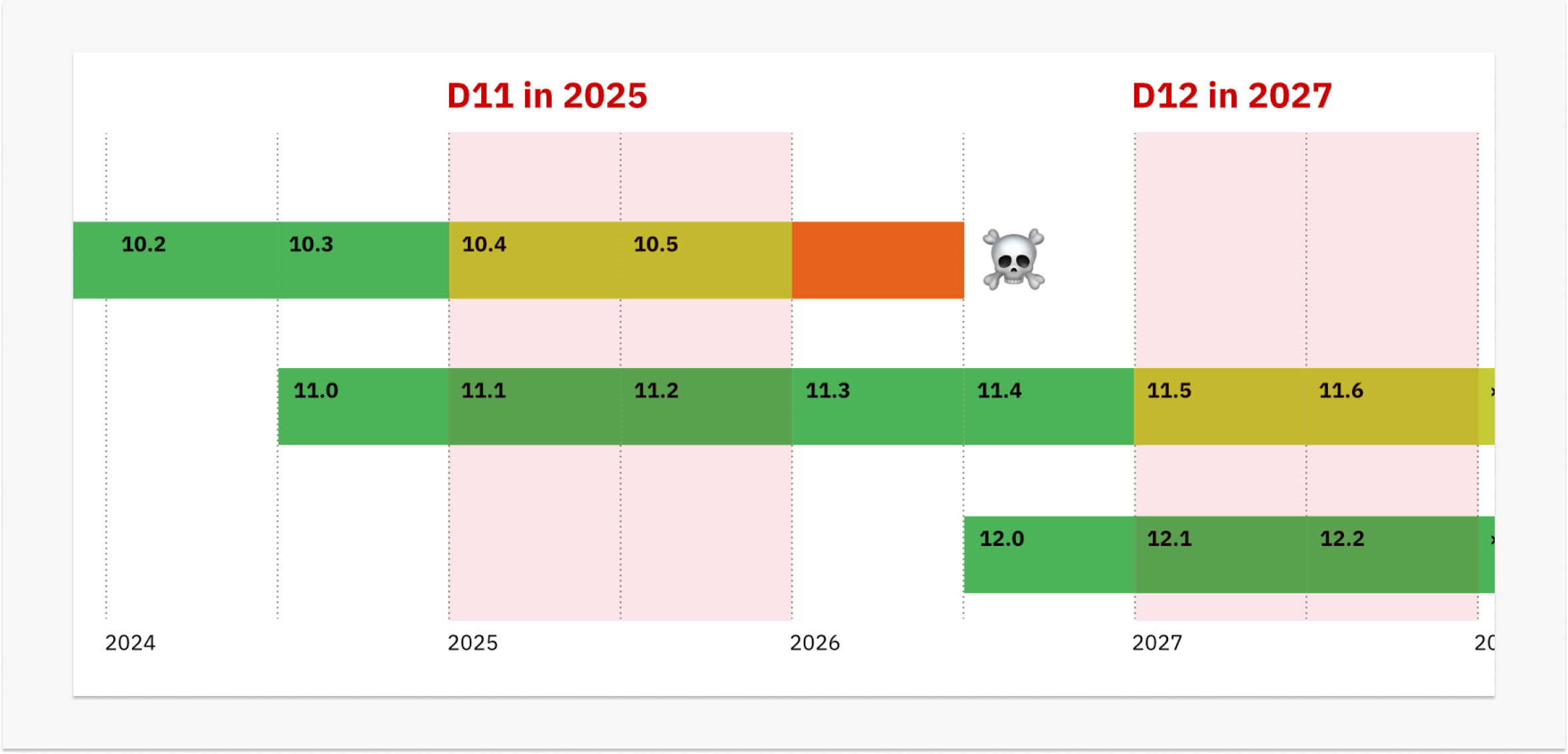
Drupal 11 is here! In part one of this two-part blog series, I walked through its new features that will benefit developers and content editors alike. Now that we know what we have to look forward to, let’s talk about how and when to upgrade to Drupal 11.
How to prepare for the upgrade process
While every Drupal site is unique and has its own requirements and complexities, I’m going to explain the general steps of a Drupal upgrade. And even though an upgrade from Drupal 10 to 11 is relatively less effort than going from Drupal 6 to 7, you still need to plan it out.
If you have a site that has a lot of contributed modules, modules that aren't well supported, or complicated custom modules, both planning the upgrade and actually doing the upgrade will take longer.
The Upgrade Status module will help with this process. With it you can assess if your modules have D11 versions, identify changes needed in custom code, and make recommendations on what to do with modules that lack D11 support. This is also a really great time to look at the modules you're using and identify any that can be removed or replaced with something newer.
How to perform the upgrades
Then you'll have to perform the upgrades. I wrote upgrades in plural here because I think it works best as a set of at least two upgrades, maybe more in some cases.
The first upgrade is to ensure that the new platform requirements are satisfied. This could mean some extra work if you're responsible for maintaining your web servers. So make sure you are aware of those.
It works well to first update your modules and test to make sure everything is working as expected. Module changes are where regressions or errors are going to come up. Upgrading those to versions that are compatible with both D10 and 11 will give you plenty of time to test and isolate variables.
And then do a separate deployment to update Drupal core itself. This will depend heavily on the complexity of your code and operations, but I think it's reasonable to expect that the development timeline will be measured in hours to days.
If you have an e-commerce site where the risk and impact of downtime is high, or you have a super complicated custom codebase, it could take days, or even weeks. But if you have a very simple site, it could be done in an afternoon.
When you should upgrade to Drupal 11
The Drupal life cycle
So here we are in early 2025. Drupal 10.4 is out and is in “maintenance support,” which means that select changes from Drupal 11 will be backported down, but at this point Drupal 11 has development priority. Around the end of 2025, Drupal 10 will enter a period where it only receives security updates, and it will reach end of life in mid-2026 when Drupal 12 is released.

What happens at Drupal end of life
When any given Drupal version reaches end of life, your site will continue to function. It's not like a license that expires and suddenly your site stops working, but there are no more bug fixes to your installed Drupal core, and most critically there are no more security updates. Contributed module maintainers have focused on newer versions, so they're not really getting regular updates.
All of this means that upgrading later takes more effort because there's more and more that has to be addressed as time goes on.
Looking at Drupal 11
11.0 was released in summer of 2024, and Drupal 11 will be receiving active development support until around 2027, when it goes into maintenance support like I described earlier.

Putting this together and adding in the Drupal 12 cycle, I think the second half of 2025 is going to be the right time for most people to upgrade to Drupal 11 with some caveats.

For instance, if you have a simpler site and all of your contributed and custom modules are ready to run on Drupal 11, there's no harm in doing it sooner. But I think for most larger sites, it's best to let contributed modules catch up with Drupal 11 development, let some of the kinks get worked out in the community, and then upgrade.
Now that Drupal is on a more steady and predictable release schedule, we can start looking forward to new features in Drupal 12 in 2027.
Read This Next
- Simplified Drupal Views Styling with Custom Style Plugins
- Leveraging Laravel to Modernize Guttmacher Institute’s Database
- Enhanced Bot Protection with Cloudflare
- The Hidden Costs of Choosing Budget Hosting for Your Drupal or WordPress Website
- Syncing Drupal and React for a Custom Interactive Map for Tampa International Airport